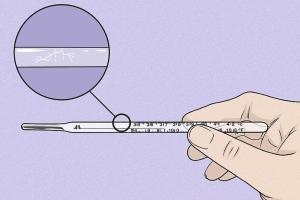Ultimate Guide to Repairing Mercury Thermometers: Step-by-Step Instructions for Homeowners

-
Quick Links:
- 1. Understanding Mercury Thermometers
- 2. Common Issues with Mercury Thermometers
- 3. Tools Needed for Repair
- 4. Step-by-Step Guide to Repairing a Mercury Thermometer
- 5. Safety Precautions When Handling Mercury
- 6. When to Seek Professional Help
- 7. FAQs
- 8. Conclusion
1. Understanding Mercury Thermometers
Mercury thermometers have been a staple in measuring temperature due to their accuracy and reliability. They consist of a glass tube filled with mercury, which expands and contracts in response to temperature changes. This section discusses the history, functionality, and types of mercury thermometers.
1.1 History of Mercury Thermometers
Mercury thermometers were invented in the early 18th century and became widespread in the 19th century. Their popularity stemmed from their precision, but concerns over mercury's toxicity have led to a decline in their use.
1.2 How Mercury Thermometers Work
When the temperature rises, the mercury expands, moving up the scale marked on the thermometer. Conversely, when the temperature drops, the mercury contracts. This simple yet effective mechanism allows for accurate temperature readings.
1.3 Types of Mercury Thermometers
- Clinical Thermometers
- Laboratory Thermometers
- Industrial Thermometers
2. Common Issues with Mercury Thermometers
Despite their reliability, mercury thermometers can encounter several issues, including:
- Broken glass casing
- Mercury leakage
- Stuck mercury column
- Inaccurate readings
3. Tools Needed for Repair
Before attempting to repair a mercury thermometer, it's essential to gather the necessary tools:
- Protective gloves
- Safety goggles
- Tweezers
- Small container for mercury
- Super glue or epoxy
- Thermometer calibration tool
4. Step-by-Step Guide to Repairing a Mercury Thermometer
Follow these steps to repair your mercury thermometer:
4.1 Assessing the Damage
Begin by carefully examining the thermometer for visible damage. Look for cracks in the glass, mercury leaks, or a stuck mercury column.
4.2 Repairing Broken Glass
If the glass is broken but the thermometer is still intact, carefully clean the area around the break. Use super glue or epoxy to seal the crack. Allow it to dry completely before testing the thermometer.
4.3 Addressing Mercury Leakage
If mercury is leaking, it is crucial to handle it safely. Use tweezers to pick up any visible mercury beads and place them in a small, secure container. Follow local guidelines for disposing of mercury.
4.4 Fixing a Stuck Mercury Column
To fix a stuck mercury column, gently tap the thermometer against a soft surface. This action may help dislodge the mercury. If this does not work, try warming the thermometer slightly with your hands, but ensure you do not overheat it.
4.5 Calibrating the Thermometer
Once repairs are complete, it is essential to calibrate the thermometer. Use a thermometer calibration tool to ensure accurate readings.
5. Safety Precautions When Handling Mercury
Handling mercury requires caution due to its toxic properties. Here are some safety precautions:
- Always wear protective gloves and goggles.
- Work in a well-ventilated area.
- Do not attempt to repair a mercury thermometer if you are uncomfortable with handling hazardous materials.
- Follow your local regulations for the disposal of mercury.
6. When to Seek Professional Help
If the damage to the thermometer is severe, or if you are unsure about handling mercury safely, it is best to seek professional help. Experts have the necessary tools and experience to handle hazardous materials safely.
FAQs
1. Can I repair a mercury thermometer myself?
Yes, but only if you feel comfortable handling hazardous materials and have the necessary tools.
2. What should I do if mercury spills?
Follow local guidelines for mercury clean-up, which may involve contacting a hazardous waste disposal service.
3. Is it safe to use a repaired mercury thermometer?
If repaired correctly and calibrated, it can be safe to use, but always prioritize safety.
4. Where can I dispose of a broken mercury thermometer?
Check with local waste management authorities for proper disposal methods.
5. What are the alternatives to mercury thermometers?
Digital thermometers and alcohol thermometers are safer alternatives.
6. How do I know if my thermometer is accurate?
Calibrate it against a known accurate thermometer to check its accuracy.
7. Can mercury thermometers be reused?
Yes, provided they are repaired correctly and are still functional.
8. How can I prevent mercury thermometer damage?
Handle with care, avoid dropping, and store in a protective case.
9. Are there regulations regarding mercury thermometers?
Yes, many countries have regulations concerning the sale and use of mercury thermometers due to health risks.
10. What are the risks of using a mercury thermometer?
Risks include mercury exposure, which can lead to serious health issues if not handled properly.
8. Conclusion
Repairing a mercury thermometer can be a straightforward process if you follow the right steps and take necessary safety precautions. By understanding the mechanics of these instruments and knowing how to address common issues, you can extend the life of your mercury thermometer and ensure its accuracy for many years to come.
References
Random Reads
- How to protect a cracked phone screen
- How to puncture the seal on caulk
- How to rotate google photos android
- Mastering hanging red dead redemption
- Mastering gpg ubuntu
- Mastering google reviews
- Real vs counterfeit yu gi oh cards
- Quickly send calls to voicemail ios
- How to set up dhcp on a local area network
- How to launch a website